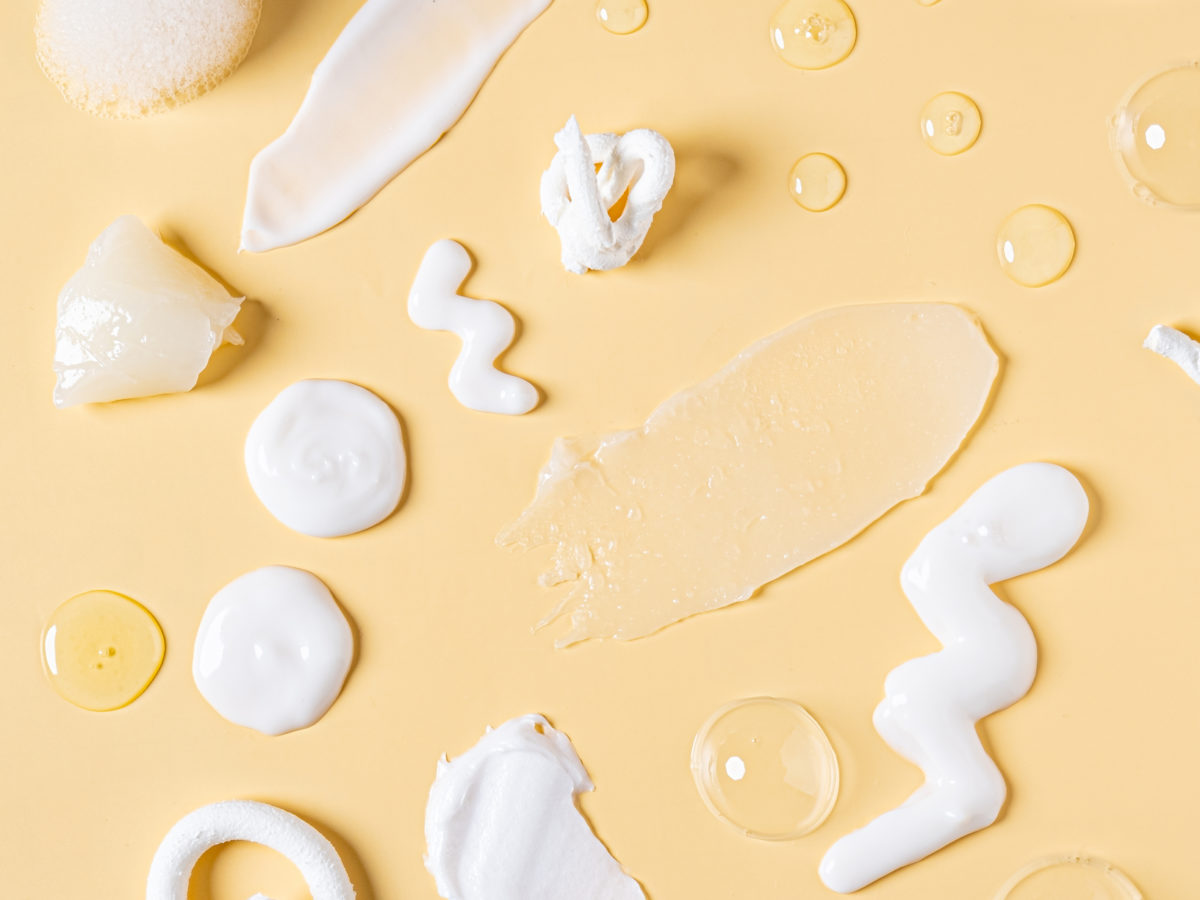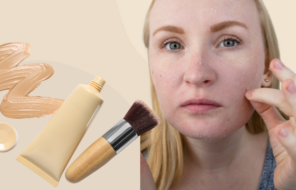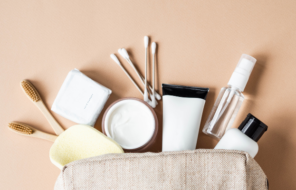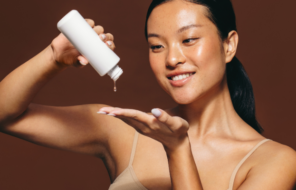If you make one change to your skincare routine this year, it should be getting serious about sun protection. We’ve all heard SPF is essential for healthy skin, but still, only 19% of Americans use sunscreen daily.
Too much sun exposure is bad for your health and tough on your skin. If you’re hoping your skincare routine will offer anti-aging effects and keep your skin clear and glowy, sunscreen is a must. It’s also worth noting that SPF has come a long way from the sticky, gloopy formulas our parents smeared on us at the pool. If you need a refresh, here’s more about how SPF works, the benefits of sunscreen, and tips to help sunscreen become part of your daily routine.
How SPF works
The SPF on a sunscreen bottle stands for sun protection factor. SPF measures how much UV radiation it takes to burn your skin compared to going out without protection. The number doesn’t relate to how much time you can go between applications, but it can give you a sense of how many harmful rays your sunscreen may help block.
Of course, that’s assuming you apply it correctly, which not all of us do. One group of doctors proposed a “two finger” rule: squeeze a line of sunscreen down the length of two fingers for each section of your body — left arm, right arm, upper and lower parts of each leg, upper and lower back, and so on. You should use a nickel-sized amount on your face.
Benefits of wearing sunscreen
Making SPF a habit has a wide range of benefits, from short-term to lifelong. Here are a few standouts.
Helps avoid sunburn
Anyone who’s spent too much time lying out on the beach knows a sunburn can be the worst part of a vacation. In the short term, a sunburn can cause redness, swelling, and an uncontrollable tendency to yelp when someone smacks you on the back. A bad sunburn can even cause blistering and peeling.
These short-term troubles are bad enough, but even one sunburn can have lingering, long-term effects on your skin. Your skin may not be able to reconstruct itself perfectly, which can affect the texture. A sunburn is also a clear sign that your skin is weathering UV damage, which can accelerate your skin’s aging process and increase melanoma risk.
Lowers risk of skin cancer
The most important reason to become a sunscreen devotee is to cut your risk of skin cancer. Daily use can slash your melanoma risk in half and reduce the risk of squamous cell carcinoma by 40%.
You deserve a skincare routine that makes you feel healthy and powerful. If avoiding severe disease is as simple as applying a swipe of sunscreen before the rest of your morning routine, do it.
Prevents skin damage
So much of beauty comes in the imperfections: a freckle, a birthmark, or even a well-earned wrinkle that speaks to years of expressions and important memories. That said, you’d probably prefer to skip premature skin damage like age spots or sagging.
UV rays damage collagen in your skin. Over time, your skin can’t repair itself correctly, leading to sagging or leathery skin. Just remember, your best imperfections should show something unique about you, not what you forgot to do.

How SPF can work alongside skincare serums
Sunscreen brings a lot of benefits to you all by itself. It can also help other steps in your skincare routine work better.
Some skincare faves, like retinol and glycolic acid, can make your skin more sensitive to sun damage. Facial peels and some dark spot correctors can leave your skin more vulnerable to UV rays. Sunscreen helps protect your skin from further damage while letting another favorite serum do its work.
What if I don’t like sunscreen?
This probably isn’t the first time you’ve heard that SPF is necessary to limit harmful UV exposure, protect your health, and prevent sunburns and premature aging. But committing to slathering yourself daily (or more) with greasy sunscreens can be hard.
Dermatologists tend to agree — that the “best” sunscreen is the one you’ll actually use consistently. Look for high SPF (minimum 30, and higher is better) and whatever texture suits your skin type, from light and non-greasy to creamy or even a lip gloss-type gel.
Find a formula you love
Prone to oily skin? Light and matte sunscreens are your SPF BFF. Want a tinted sunscreen that works with your makeup? Here are some of our favorites. Or, try a powder SPF you can blend on the go.
The days of hunting for a three-year-old bottle in the bottom of a sandy beach tote are over. Find a formula you love, and you might start to enjoy adding sunscreen to your daily routine.
Try this sunscreen routine
Get your best sun protection all day long by making sunscreen an easy part of your routine.
In the morning:
- Start with a clean face.
- Apply serums first so their ingredients can absorb deep into the skin.
- Apply a nickel-sized dollop of sunscreen in two applications if needed. Let it absorb into your skin.
- Add extra moisturizer overtop if needed, or use a moisturizing sunscreen for a 2-in-1 step.
- Skip primer, which could make sunscreen less effective. Sunscreen with silicone can offer some of the same benefits of a primer.
- Use a gentle touch when applying foundation, concealer, or powder, so you don’t accidentally wipe off the sunscreen.
- Apply sunscreen to exposed areas of your body (e.g., forearms, back of your neck, ears).
During the day, you might need a sunscreen touch-up. You generally want to apply every two hours if you’re spending a lot of time outside, swimming, or breaking a sweat. If you’re indoors at your computer most of the day, you might not need more SPF.
Sunscreen powder can be a great way to get extra coverage for your face without redoing your makeup. A small bottle of sunscreen in your purse is handy for body touch-ups. If you’re concerned about spillage, look for sunscreen wipes, which are individually packaged and easy to grab on the go.
Skipping the SPF isn’t worth it
Solid skincare is just as important as washing your body or taking care of your teeth. Fortunately, there are more options than ever to make sunscreen an easy part of your everyday routine so you can feel good about protecting your skin for years to come.





